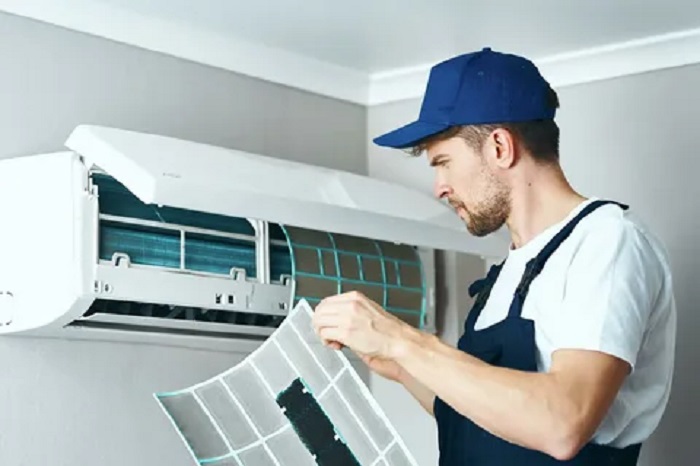Last summer, my AC stopped blowing cold air in the middle of a hot afternoon. I didn’t panic (well, maybe just a little), but I knew it was time to figure out who to call for ac air conditioner repair. The tricky part wasn’t just finding someone — it was understanding what I needed and what was actually going on.
If you’ve ever been in that spot — sweating indoors, clicking buttons on the thermostat, wondering if you’re doing something wrong — you’re definitely not alone.
Small Problems Feel Big When It’s 90 Degrees Outside
When it’s hot and your AC isn’t doing its job, even a small issue can feel like a major crisis. But a lot of the time, the fix is simpler than it seems. It could be something like a dirty filter, a tripped breaker, or a thermostat that’s lost its mind.
That’s why the first thing a good technician does isn’t start replacing parts — they troubleshoot. They look at how your system is running overall and check for obvious signs that something’s off. Most ac air conditioner repair jobs start with finding out what part of the system isn’t talking to the others. And when they find it early, you avoid the kind of big repairs no one wants to deal with.
Your AC Needs Regular Attention (Even If It Feels Fine)
A lot of folks — myself included, at one point — only call someone when the unit stops working. But after a couple surprise breakdowns, I learned that giving your system a little attention during the off-season can make a big difference. Regular maintenance keeps the parts clean, the airflow steady, and the pressure where it should be.
That doesn’t mean you have to become an HVAC expert. But checking in once or twice a year with someone who knows what they’re doing can help you avoid the need for emergency ac air conditioner repair when temperatures spike. Think of it like brushing your teeth — routine care keeps the big problems away.
You Deserve Clear Answers, Not Confusing Tech Talk
I remember one service visit where the technician explained everything like I was another pro in the field. He meant well, but I had no idea what “condenser coil optimization” even meant. What I really wanted was a simple explanation: “This part’s dirty. It’s making your AC struggle.”
The best professionals I’ve met are the ones who explain things in regular language. They’ll show you what’s wrong, tell you how to fix it, and even give tips to avoid the same problem later. If your ac air conditioner repair feels like a mystery, don’t be afraid to ask questions. You’re the one living in the house — you deserve to understand what’s being done.






Оставить ответ